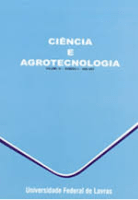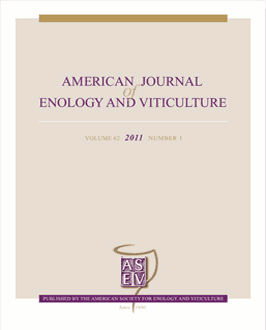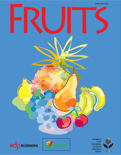
Sugar Tech
Scope & Guideline
Leading the Way in Sugarcane Innovation and Sustainability
Introduction
Aims and Scopes
- Sugarcane and Sugar Beet Agronomy:
Research on cultivation practices, varietal improvement, and management strategies aimed at optimizing yield and quality in sugarcane and sugar beet production. - Biotechnology and Genetic Engineering:
Studies focusing on the application of biotechnological tools, including genome editing, molecular markers, and genetic profiling to enhance sugar crop varieties for better traits. - Sustainability and Environmental Impact:
Investigations into sustainable farming practices, waste management, and the ecological impacts of sugarcane and sugar beet cultivation. - Processing Technologies:
Research on innovative processing techniques, including fermentation, extraction, and clarification methods to improve sugar production efficiency. - Pest and Disease Management:
Studies addressing biocontrol methods and integrated pest management strategies to combat diseases and pests affecting sugar crops. - Economic and Market Analysis:
Analyses pertaining to the economic aspects of sugarcane and beet production, market trends, and the socio-economic impacts of sugar industries.
Trending and Emerging
- Sustainable Agricultural Practices:
An increasing focus on sustainability, including the use of cover crops, organic farming, and regenerative agriculture practices, is evident in recent studies. - Advanced Biotechnology Applications:
The rise of genome editing technologies, such as CRISPR/Cas9, and their applications in crop improvement are trending topics, reflecting the industry's push for innovation. - Climate Change Adaptation Strategies:
Research addressing the impacts of climate change on sugarcane and beet production, including drought resistance and adaptive management practices, has gained significant attention. - Bioprocessing and Waste Valorization:
There is a growing interest in utilizing by-products and waste materials from sugar production for bioenergy and bioproduct development. - Digital Agriculture and Precision Farming:
The integration of AI, remote sensing, and data analytics in sugarcane cultivation and management is emerging as a critical area of research, enhancing productivity and sustainability.
Declining or Waning
- Traditional Sugar Production Techniques:
Research on conventional methods of sugar extraction and processing has decreased, possibly due to a shift towards more sustainable and innovative technologies. - Static Pest Control Methods:
Studies focusing solely on traditional pest control measures without considering integrated approaches are becoming less common as the industry moves towards more holistic pest management strategies. - Generic Crop Management Practices:
There is a waning interest in generic agronomic practices that do not consider the specific needs of different sugarcane and beet varieties or regional conditions. - Single-Dimensional Economic Analyses:
Publications focusing only on single-dimensional economic factors without incorporating broader socio-economic impacts are less prevalent, as the industry emphasizes comprehensive assessments.
Similar Journals

Revista Latinoamericana de la Papa
Advancing potato science for a sustainable future.Revista Latinoamericana de la Papa is a pioneering journal dedicated to the study and promotion of potato science in Latin America. Published by the ASOC LATINOAMERICANA PAPA, this esteemed journal has embraced Open Access since 1988, allowing researchers, professionals, and students unrestricted access to vital research findings and advancements in the field. With its ISSN 1019-6609 and E-ISSN 1853-4961, the journal serves as a crucial platform for disseminating high-quality research on potato genetics, agronomy, pest management, and sustainable cultivation practices critical for improving food security and agricultural resilience in the region. Located in Argentina, the journal aims to foster collaboration and innovation among researchers and practitioners, making it an indispensable resource for anyone involved in the potato sector in Latin America and beyond.

Temas Agrarios
Championing Open Access to Transformative Agricultural ResearchTemas Agrarios is a premier scholarly journal focused on the dynamic field of agricultural sciences, published by the University of Córdoba, Faculty of Agricultural Sciences. Since its establishment, this journal has committed to advancing knowledge and fostering research in agricultural practices and policies, contributing significantly to the discourse surrounding food security, sustainable farming, and rural development. With an open access model implemented in 2003, Temas Agrarios ensures that critical information and research findings are readily available to the global academic community, promoting wider dissemination and accessibility. Researchers, professionals, and students can benefit from its insightful articles, which address pressing agricultural issues in Colombia and beyond, enhancing both local and international scientific dialogue. Although specific impact metrics such as H-index and Scopus rankings are not disclosed, the journal's longstanding presence underscores its importance as a platform for high-quality agricultural research.

Pesquisa Agropecuaria Tropical
Driving excellence in agricultural science since 1971.pesquisa Agropecuaria Tropical is a premier Open Access journal dedicated to advancing the knowledge and practices within the field of agronomy and crop science. Since its inception in 1971, this peer-reviewed journal, published by the Universidade Federal de Goiás, has played a pivotal role in disseminating high-quality research from Brazil and beyond. Operating under an Open Access model, it ensures that scholarly articles are freely accessible, thereby fostering greater collaboration and innovation. With a Scopus ranking placing it in the 32nd percentile among its peers in agricultural and biological sciences, and a current classification in the Q3 category of agronomy and crop science, the journal serves as an essential resource for researchers, professionals, and students alike. As it continues its publication journey from 2010 to 2024, it remains committed to contributing valuable insights and advancements in the agricultural sector, ultimately influencing sustainable practices and food security.

CIENCIA E AGROTECNOLOGIA
Connecting Researchers for a Greener TomorrowCIENCIA E AGROTECNOLOGIA, published by UNIV FEDERAL LAVRAS-UFLA, is a vital open-access journal since 2005 that serves as an influential platform for disseminating research in the fields of Agronomy, Animal Science, Food Science, Soil Science, and Veterinary Science. With its ISSN 1413-7054 and E-ISSN 1981-1829, this journal is recognized for its contribution to science and technology advancements in agriculture, particularly in Brazil, fostering knowledge exchange among researchers, professionals, and students. Currently ranked in the Q2 quartile for Agronomy and Crop Science, Animal Science and Zoology, and in the Q3 quartile for Food Science and Soil Science, it demonstrates a solid international standing in the relevant Scopus indices. The journal's commitment to open access ensures that critical research findings are freely available, enabling a broader impact and encouraging collaborative advancements in agritech. As the journal looks towards its converged years from 2007 to 2024, it continues to uphold its objectives of promoting sustainable practices and innovation within the agricultural sciences.

Journal of Cotton Science
Exploring the Depths of Cotton ResearchJournal of Cotton Science is a vital publication dedicated to advancing the understanding and innovative practices within the cotton industry. Published by the NATIONAL COTTON COUNCIL OF AMERICA, this journal has been a key resource for researchers, agronomists, and industry professionals since its inception in 1997, with contributions spanning various aspects of cotton science, including breeding, genetics, pest management, and environmental impact. With an ISSN of 1523-6919 and an E-ISSN of 1524-3303, it currently holds a Q3 ranking in the Materials Science (miscellaneous) category as per the 2023 quartiles. While the journal operates without open access, it remains accessible to professionals looking to contribute to its expanding reach. The Journal of Cotton Science plays a pivotal role in disseminating cutting-edge research and fostering collaboration among scientists, positioning itself as an essential resource in the ongoing exploration of cotton's material science applications. Stay up to date with the latest findings and developments that shape the future of this crucial agricultural product.

AMERICAN JOURNAL OF ENOLOGY AND VITICULTURE
Fostering Excellence in Enology and Viticulture Scholarship.The American Journal of Enology and Viticulture, published by the American Society of Enology and Viticulture, serves as a pivotal platform for scholarly research in the disciplines of enology and viticulture. With a distinguished ISSN of 0002-9254 and an E-ISSN of 1943-7749, this esteemed journal has been contributing significant insights since its inception in 1973. Currently residing in the prestigious Q2 category for both Food Science and Horticulture, it ranks impressively among its peers, standing at #27 out of 115 in the Horticulture sector and #165 out of 389 in Food Science, reflecting its impact and relevance in agricultural research. The journal offers a wealth of valuable research articles, reviews, and studies that explore the intricacies of grape cultivation and wine production, making it an indispensable resource for researchers, professionals, and students keen on advancing their knowledge in these fields. Although it does not currently operate under an open-access model, the rigorous peer-review process ensures that only high-quality, scientifically sound content is disseminated, promoting innovation and collaboration in the pursuit of excellence in viticulture and enology.

Revista de la Facultad de Agronomia de la Universidad del Zulia
Empowering Scholars: A Platform for Agronomic ExcellenceWelcome to the Revista de la Facultad de Agronomia de la Universidad del Zulia, a key publication in the fields of Agronomy, Animal Science, Food Science, and Plant Science. Published by the Facultad de Agronomía, Universidad del Zulia, this journal aims to foster academic dialogue and disseminate impactful research that advances knowledge and practice within these disciplines. Operating under the ISSN 0378-7818 and E-ISSN 2477-9407, this journal offers a platform for both emerging and established scholars to share their discoveries and innovations. Despite its challenges, as reflected in its Q4 ranking across multiple categories in 2023, it remains a vital resource for the Venezuelan scientific community and beyond. Readers will benefit from a diverse array of studies and discussions that address contemporary issues in agriculture and related fields, helping inform best practices and policy. Engage with cutting-edge research from Venezuela and contribute to the development of agronomic sciences in the region.

Fruits
Innovating Agriculture Through Fruit Science Insights.Fruits, published by the International Society for Horticultural Science (ISHS), is a pivotal journal in the fields of Agronomy, Food Science, and Horticulture. Since its inception in 1995 and with a continued publication from 2001 to 2024, this journal provides a platform for innovative research and advancements related to fruit science, covering an array of topics from cultivation techniques to post-harvest processing. With an ISSN number of 0248-1294 and an E-ISSN of 1625-967X, *Fruits* engages a global audience, operating out of France and serving as a vital resource for academics, industry professionals, and students alike. Despite its current categorization as Q4 in Agronomy and Crop Science and Q3 in both Food Science and Horticulture, the journal is committed to fostering high-quality research and enhancing its visibility within the academia, as reflected in its Scopus rankings. Readers can expect rigorous peer-reviewed articles that contribute significantly to the understanding of fruit-related science, ultimately driving the advancement of sustainable practices in the field. Emphasizing accessibility, while currently not open access, *Fruits* remains dedicated to disseminating valuable knowledge to enhance the communal pursuit of excellence in horticultural research.

POTATO RESEARCH
Pioneering breakthroughs in potato science.POTATO RESEARCH is a prestigious journal dedicated to advancing the scientific understanding of potato cultivation and its wider implications in the fields of agronomy, crop science, and food science. Published by Springer in the Netherlands, this journal boasts an impressive impact factor and ranks in the Q2 category for both Agronomy and Crop Science, as well as Food Science in 2023, affirming its significant contribution to these disciplines. With over five decades of research converged from 1970 to 2024, POTATO RESEARCH serves as a vital platform for researchers, professionals, and students interested in the latest findings and innovations that affect potato production and processing. Although it is not an open-access journal, it remains a crucial resource for those dedicated to enhancing agricultural sustainability and food security. For inquiries or submission details, please refer to their office located at Van Godewijckstraat 30, 3311 GZ Dordrecht, Netherlands.

LISTY CUKROVARNICKE A REPARSKE
Bridging Research and Practice in AgricultureLISTY CUKROVARNICKE A REPARSKE is a premier journal dedicated to the fields of agronomy and crop science, published by LISTY CUKROVARNICKE REPARSKE in the Czech Republic. With an ISSN of 1210-3306 and an E-ISSN of 1805-9708, this journal serves as a significant platform for researchers and professionals seeking to contribute to the body of knowledge in sugar beet production and processing, as well as related agricultural practices. Although currently classified in Q4 of the Agronomy and Crop Science category, the journal has a strong commitment to enhancing its academic impact, focusing on original research articles, reviews, and innovative methodologies that address contemporary challenges in agronomy. With no open access options, it provides an exclusive space for dynamic discussions and advancements in agricultural research from 1996 to 2024. By fostering a collaborative environment, LISTY CUKROVARNICKE A REPARSKE aims to bridge the gap between scientific exploration and practical agricultural solutions, making it a vital resource for both scholars and practitioners in the agricultural sector.